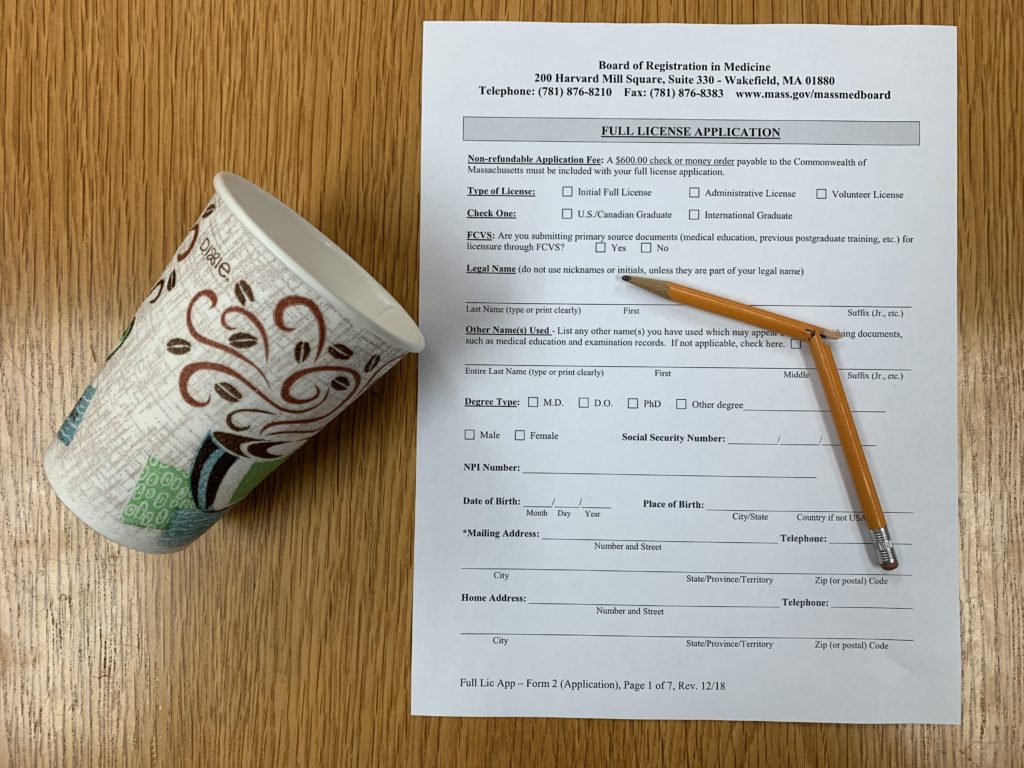
The Board of Registration in Medicine has released its December 2018 license application revision. While the application is better-organized with clearer instructions, there are significant substantive changes with a common theme: the Board wants more information about you. Here are the highlights:

Disclose investigations that exonerated you. “Supplement” Question 7 has a broad new line of inquiry. The old application asked if “you ever were the subject of any disciplinary action” while in post-graduate training. Now the Board also wants to know if you were ever “under investigation.” If falsely accused, investigated and exonerated, you still must tell the Board about it. The instructions warn that, even if the false accusation is subject to a confidentiality agreement, the confidentiality agreement does not apply to the Board. Be aware of some consequences:
More open-ended questions about “training requirements.”While the Board’s old application asked about post-graduate training “discipline,” and also had questions about non-disciplinary “probation” and “remediation,” the new application goes even further by asking, “Were any limitations or special requirements imposed on you because of questions of competency or disciplinary problems?” There are two immediate problems with this question:
Broader definition of “current impairment.” The Board also made a significant change in its “Confidential Information” questions about physical and mental health. Both the old and the new applications ask about medical and physical conditions that “currently impair” the ability to practice medicine. The old application used a subjective definition of “current”: “recently enough to impact one’s functioning as a physician.” The new application adds the objective measure “or within the last two years.”
The addition of the phrase “within the last two years” triggers many new legal questions. The definition of “current” is part of the instructions for answering the three “confidential information” questions, numbers 29, 30 and 31.
There is no universal legal advice for how to answer these questions. If you have had an impairment at any time, outside of the two-year look-back, within the two-year look-back, very recently or even today, multiple red flags should be waving at you. The legal problems include:
Finally, More Bad News…
The application process is taking longer. The old instructions estimated processing times of 10 weeks (applicants starting August to December) and 12 weeks (January to July). The new instructions increase those estimates to 12 weeks and 14 weeks, respectively. Note as well: the 12 and 14 week clocks do not start running until the Board has all paperwork from all sources, and these estimates apply only if you answered “No” to all of the “any-problem-type” questions.
About Attorney Andrew Hyams
Andrew L. Hyams specializes in representing physicians and other health professionals in licensing and disciplinary matters before their respective regulatory boards. He served as the General Counsel at the Massachusetts Board of Registration in Medicine for five years. Andy has also been Deputy General Counsel at the Boston Public Health Commission. He is admitted to practice in Massachusetts and New York.
Andy can be reached at ahyams@kcl-law.com or 781-997-1566.